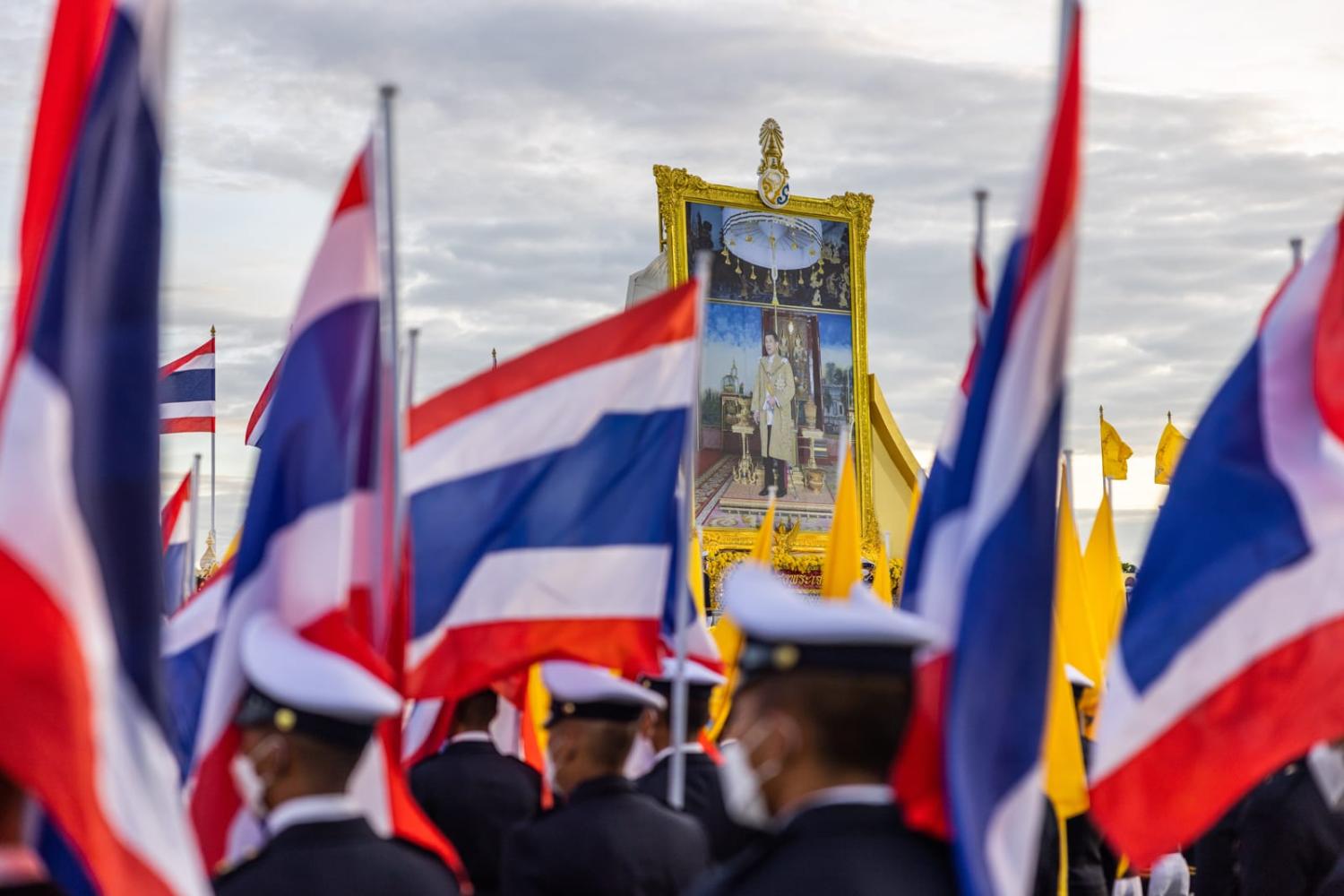On 5 December, Thailand celebrated its “National Day”. The date is the birthday of former king Bhumibol Adulyadej, who passed away in 2016 after 70 years on the throne. The date is also officially designated “Father’s Day” as a way of promoting the former monarch as father of the nation. Such was Bhumibol’s enormous authority that his birthday continues to be celebrated in Thailand well into the reign of the new king, Vajiralongkorn.
But Thailand’s National Day was not always 5 December. It was at one time celebrated on 24 June, marking the day in 1932 when a group of progressive, overseas-educated civilian bureaucrats and military officers calling themselves the “People's Party” overthrew Siam’s absolute monarchy. The nationalist regime that resulted inaugurated the first “National Day” celebration in 1939.
Following a conservative coup d’état in 1957, which ended the era of the People’s Party, the new leader Field Marshal Sarit Thanarat changed the date of National Day to 5 December, the birthday of the then young King Bhumibol, who became the figurehead of the military regime.
The date of Thailand’s National Day has recently become a subject of debate.
In May this year, Thailand held a much-anticipated election, the result of which saw a seismic shift of the Thai political landscape. The Move Forward Party won the largest number of seats in the Lower House. It was an astonishing outcome given the party’s progressive platform. As part of a sweeping set of plans, Move Forward had also proposed that Thailand’s national day revert to the original date of 24 June.
Yet seen as a challenge to the conservative hold on power, Move Forward was eventually sidelined following the election. The Senate voted against the party’s leader, Pita Limjaroenrat, forming government. Meantime, other political parties sought to isolate Move Forward by exploiting the issue of Article 112, the notorious lèse-majesté law of the Criminal Code used to protect the prerogatives of the monarchy, which Move Forward had supported amending.
Move Forward was ultimately unable to form government. But its success in the election suggests that popular notions of what it means to be Thai are changing, particularly among the young.
As in many East Asian states, nationalism in Thailand – or Siam as it was then – began to form in the late 19th and early 20th centuries. Political scientist Benedict Anderson once argued that there have been two distinctive strands of nationalism: official nationalism and popular nationalism.
Official nationalism was first articulated by King Vajiravudh, who reigned from 1910–25, and was centred on the Thai monarchy. The historian Thongchai Winichakul calls this form of nationalism “royalist nationalism” and Vajiravudh devised the slogan “Nation, Religion, King” that state propaganda continues to emphasise today. Royalist nationalism was promoted through the bureaucracy, the education system, the military, and later the mass media. In this form of official nationalism, the monarchy was the symbol of the Thai nation. Nationalist history centred on the role of Thai kings in preserving Siam’s independence.
An alternative form of nationalism, popular nationalism, also emerged around that time and like the contemporaneous types of nationalism evident in Europe, it was influenced by liberalism and later socialism. Popular nationalism saw the monarchy as backward and exploitative, instead putting the “people” at the centre of the nation and highlighting the principle of popular sovereignty. Popular nationalism helped inspire the 1932 “revolution” against the absolute monarchy.
Over the last century, Thailand has swung between these two forms of nationalism, but royalist nationalism has dominated since the Cold War.
This appears to be changing.
The monarchy’s support for the 2006 and 2014 coups, and Vajiralongkorn’s restoration of the monarchy’s powers over the military, the Sangha (Buddhist monkhood), and the Crown Property Bureau, have given rise to widespread criticism of the monarchy. In 2020, when the military regime was still in power, waves of youth protests broke out, culminating when youth leaders publicly announced an unprecedented “ten-point demand” that the monarchy be reformed along democratic lines.
Thai authorities have responded by cracking down on criticism of the monarchy using the lèse-majesté law. Some of those prosecuted under the law have been jailed for years simply for “sharing” posts deemed offensive to the monarchy. Today, lèse-majesté cases are skyrocketing. In February 2023, there were 1,895 people being politically prosecuted in 1,180 cases, according to human rights monitors. Among these numbers, 233 people were charged under the lèse-majesté law in 253 cases – the youngest accused was a 14-year-old girl. Meanwhile, the number of victims of Article 112 has been rising. Some sought refuge overseas, including in Australia. A Thai scholar, Pavin Chachavalpongpun, has launched an international advocacy project called 112WATCH to bring international attention to the lèse-majesté issue.
As Thailand enters a period of competing nationalisms, a state version versus that preferred by a younger generation, more tension will be evident. The victory of Move Forward Party at the elections reiterated the appeal of popular nationalism. But the power arrangement struck in the aftermath, plus the dire lèse-majesté situation, strongly suggests the unbending state power. And the Thai state still wants the monarchy to represent the essence of being Thai.
This article draws on a panel “Defining Thai Nationalism and its Direction” hosted by the Sydney Southeast Asia Centre at the University of Sydney and organised by the Australian Alliance for Thai Democracy.

